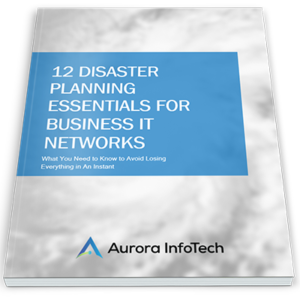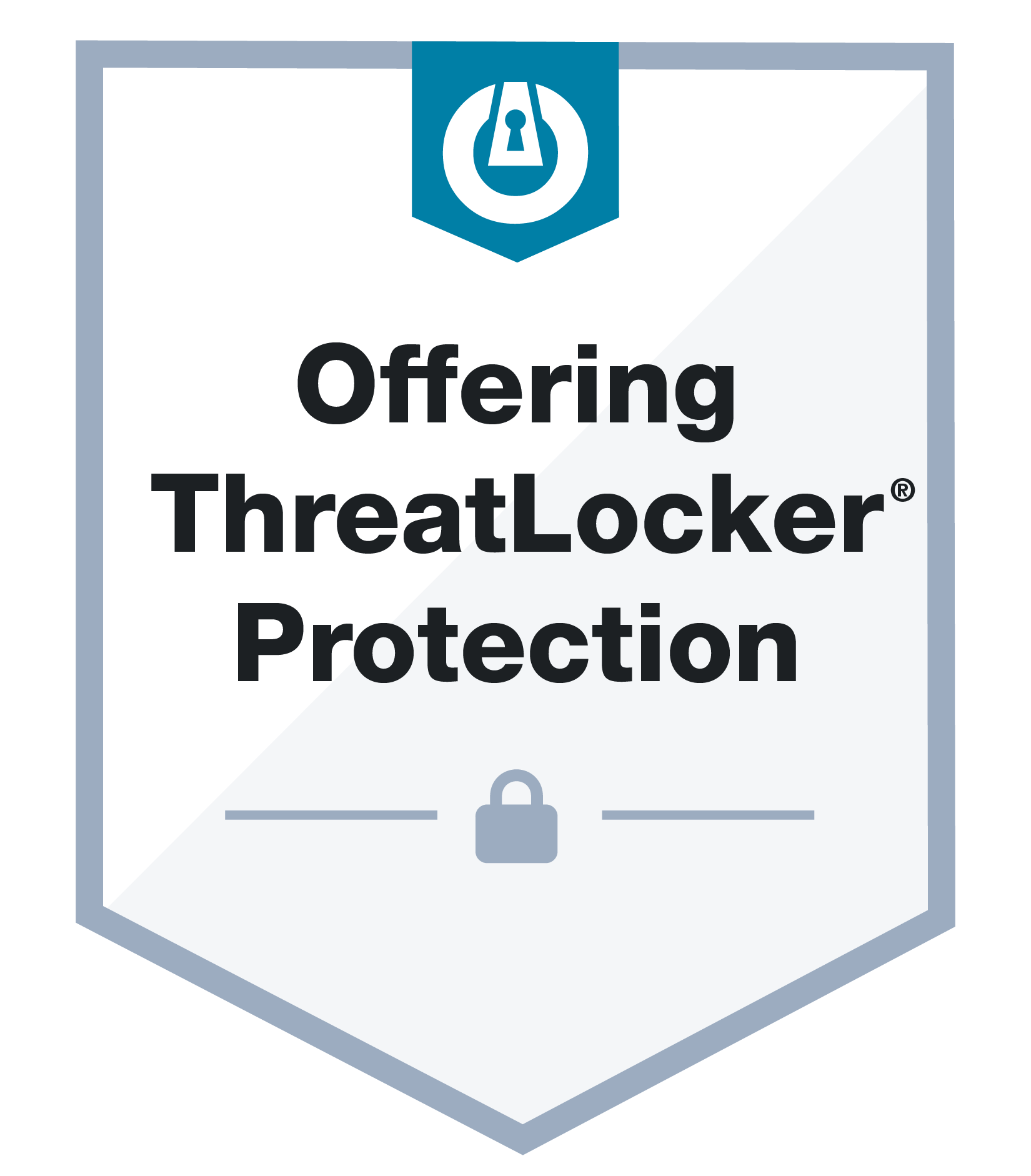
Did you know that over 30,000 websites are hacked each day? As cybercriminals become better equipped with more advanced technology, that number will increase. Small-business websites and, by extension, small businesses, in general, are the most at risk for attack because they often provide a direct link to that SMB's network, where all kinds of goodies are stored, including sensitive business and customer data. The precise type of data cybercriminals wants to get their hands on!
Cybercriminals and hackers can be aggressive when it comes to attempting to access your network and data. They use malware, ransomware, phishing scams, bot attacks, and even direct attacks to get to your data. If you don't have the right protections in place against these kinds of incursions, you are putting your business in harm's way.
You can put many "barriers" between your business and the bad guys, but there are four things you can do (and should do) right now to put yourself ahead of the curve. These four items will help to protect your business and your data from the likes of cybercriminals.
1. Create A Culture of Awareness.
Education is a powerful tool, and that is 100% true when it comes to cybersecurity. You can take several steps to create a culture of awareness where security and your data protection are always top of mind. This includes providing security awareness training and ongoing education to your employees to ensure everyone in your organization is informed about the latest threats and ways to identify & combat those threats.
Ongoing security awareness training helps your team identify threats and recognize when someone is trying to break into your network, such as through a phishing scam. Speaking of which, did you know phishing emails are responsible for 94% of ransomware and business email compromise attacks? Because cyber threats are continually evolving, ongoing education will help keep these threats top of mind, so as the threats change, your team is right there on the frontlines, ready to take on whatever may be around the corner.
2. Monitor Threats 24/7.
Did you know the FBI reported a 300% increase in the number of cybercrime cases since the start of the COVID-19 pandemic? This is where partnering with an experienced IT services firm like Aurora InfoTech comes in handy. Coming back to point #1, an IT services company can help you create that culture of awareness, but more than that, they can also keep multiple sets of eyes on your network 24/7. This way, if something or someone attempts to force their way into your network, their team of certified security experts can stop it before it becomes a problem.
Even better, real-time threat hunting & monitoring helps protect your business from more common types of attacks, such as malware or ransomware attacks. Should an employee accidentally click a harmful link or download a malicious program, it can be isolated before it takes hold and spreads.
3. Make Sure Protections Are Up To Date.
Did you know that hackers create over 300,000 new pieces of malware daily? Practically every piece of hardware and software you use has vulnerabilities and requires updates at some point. When you don't update, you put yourself at serious risk. Hackers are always looking to exploit vulnerabilities in the apps and devices you use daily.
A CRM software is a good example. This software connects your business with customers, and it often stores business-critical information, from basic contact information to highly sensitive customer-specific data.
Should a vulnerability be found in the CRM, hackers won't waste any time attempting to exploit it. In response, the makers of that CRM software should send out a security patch. If you do not apply the update (or have the update automatically installed), your risk increases significantly.
Again, working with a professional IT services firm, such as Aurora InfoTech, can help you address this minor – but critical – step. They will ensure everything under your roof is up-to-date and that you have all the latest protections in place.
4. Have A Plan.
Every single person on your team should be on the same page. They should all be required to use secure passwords and multifactor authentication. They should know how to identify potential phishing scams. They should know who to call if the network or their devices go down for any reason. You should know the exact steps to take if your data becomes compromised in any way, whether it's due to malware, a natural disaster (flooding, fire, etc.), or hardware failure.
In short, you should have an IT handbook – a plan that spells out every detail of your IT protocol and Cybersecurity strategies. This goes hand in hand with the three points we've already discussed: awareness, threat monitoring, and keeping hardware and software updated. When you have a plan, you know exactly what to do when threats come your way. You're ready and aware.
Cyber threats are always going to be out there. There isn’t anything you can do about that. But there are things you can do for yourself and your business to prepare for those threats. Put these four points into action, work with an IT services provider and give yourself the advantage over those who want to take advantage.
Don’t lose everything you’ve worked so hard to achieve in an instant!
Our Free Guide, “12 Disaster Planning Essentials for Business IT Networks: What You Need to Know to Avoid Losing Everything in an Instant” will be a real eye-opening for you and contains important information that can literally “save your business” in the event of a server crash, natural disaster, virus attack, or digital disaster.
Free Guide: Disaster Planning for Business IT Networks
Every business should have some type of plan in place for continued operation after a disaster. Hopefully, you’ll never need it, but having a simple plan will make you sleep a lot easier at night knowing you have a way to continue to operate when disaster strikes.
This report will reveal 12 important planning strategies you should have in place now to protect yourself from common data-erasing disasters including natural hazards, human error, cybercriminals, hardware failure, software corruption, and other IT failures.

Need Help Implementing The 12 Disaster Planning Essentials Outlined in the Guide? Call us for A FREE Disaster Recovery Audit & Assessment of your IT Network? Aurora InfoTech is a premier managed services provider specializing in both network security and information technology. Give us a call today at (407) 995-6766 to discuss your network disaster recovery & security needs, and to learn more on how best we can secure your business IT network. Want more Tech Tips & Security Strategies? Sign-up for our Free Cyber Security Tip of the Week email to always stay one step ahead of hackers and cyber-attacks.

Roy Richardson
Managing Partner & Co-Founder
Roy Richardson is a co-founder, Managing Partner, and CTO of Aurora InfoTech LLC, a leading Cybersecurity & IT consulting firm in Orlando, Florida. He is also a co-author of the Amazon Bestselling book, "Hack Proof Your Business", a Cybersecurity guide for business owners & executive leadership.
Roy has 20+ years of executive management & engineering experience in the Cybersecurity, Information Technology, and Telecommunication industries. The vast experience he gained over the course of his career has given him a unique perspective that allows him to relate to a broad spectrum of business & technology challenges.










